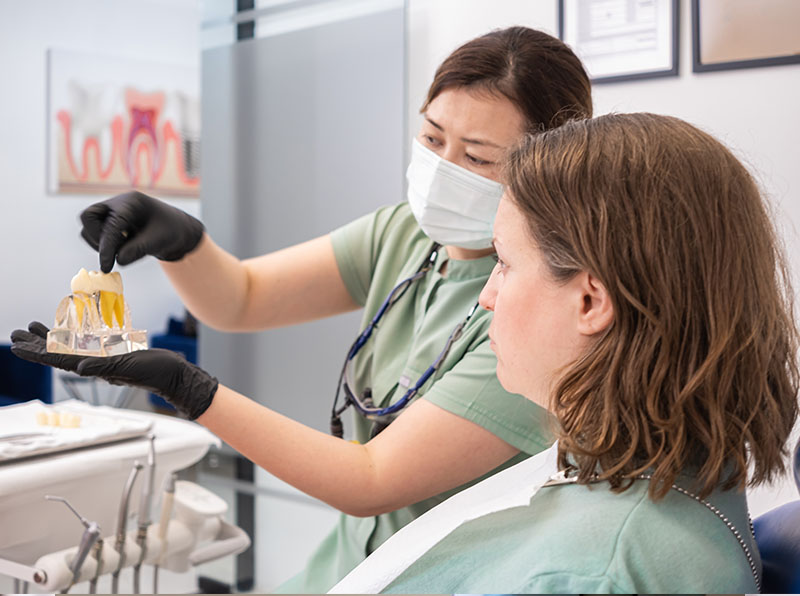
Revive Your Smile with Your Own Tooth
While damaged or infected teeth can often be treated, there are situations where extraction and replacement are necessary. This is especially true if you have deep decay, advanced localized gum disease, traumatic injuries, or root damage.
When it comes to replacing a missing tooth or several teeth, some different options are available, these include the following:
- fixed bridgework
- dental implants
- removable partial dentures.
But our favorite approach to solve this issue is an efficient and safe solution, which uses your own tooth as a “natural” dental implant, known as “autotransplantation.”
Autotransplantation of teeth involves the removal of a tooth from one area of your mouth and relocating it to the site of the missing tooth, functioning as a natural implant. It can be performed with various teeth throughout the mouth, depending on your specific case.
With a success rate of approximately 90 percent, it stands as a viable alternative to traditional dental implants.
Rediscover Your Smile’s Natural Brilliance.
In cases where dental damage seems irreversible, we use porcelain or porcelain-fused-to-gold crowns to rejuvenate your smile. Our versatile techniques allow us to seamlessly replace missing teeth, create picture-perfect smiles, and restore full bit function.
Our reputation is built on the remarkable transformations we achieve using effective techniques. These treatments offer lasting solutions for significant dental issues, often lasting up to 20 to 30 years – as close to permanent as dental treatments can get.
Replacing a first molar with a wisdom tooth - here’s how it works
Tooth removal
The first molar is carefully removed, and the socket is prepared for transplantation.
Wisdom tooth placement
The wisdom tooth is extracted from its original location and precisely positioned in the socket previously occupied by the first molar.
Stabilization
The transplanted tooth is stabilized for a week or two to facilitate proper healing.
Autotransplantation
Research indicates that the most favorable outcomes in autotransplantation occur when the patient is around 17 years old. At this age, the wisdom tooth’s roots are typically two-thirds formed, reducing the need for root canal therapy following transplantation.
For individuals aged 21 and older, where the wisdom tooth is fully formed, root canal therapy may be required approximately a month after the procedure.
Feel you could benefit from autotransplantation?
Let Pannu Dental Group guide you through the possibilities of tooth transplantation, ensuring you regain both function and aesthetics in your smile.

Dr Pannu

Dr. Wu Xiao

Dr Phan

Dr Shah

Dr Liu

Dr Zaghi

Dr. Valerie Tran





